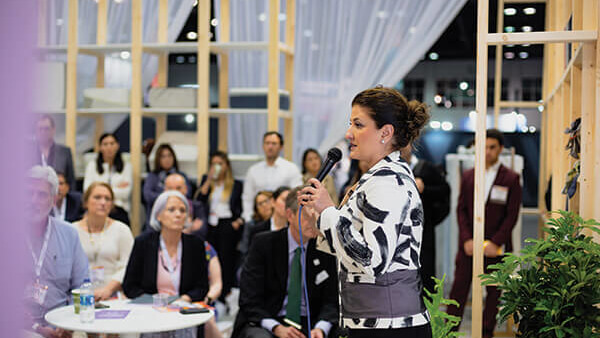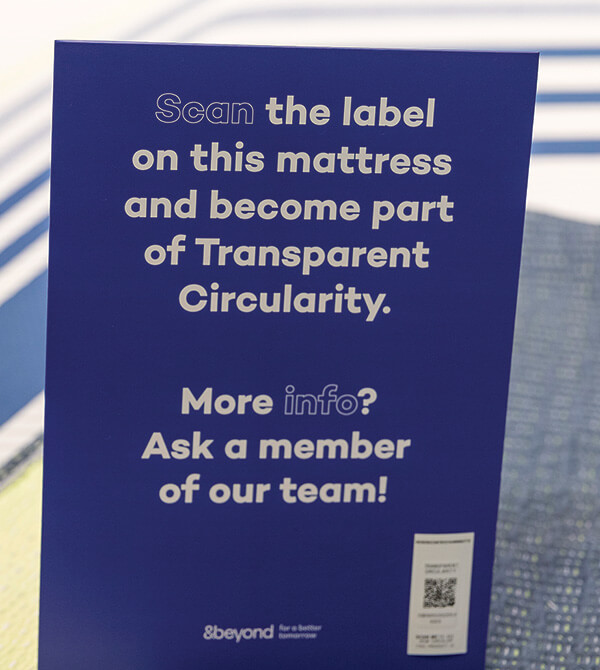BekaertDeslee has developed a new platform to identify not only the textile waste but all the components in a mattress to address sorting and recycling issues in the industry

No less than 35 million mattresses end up in an incinerator or in a landfill each year in Europe alone, according to BekaertDeslee, a global mattress fabric and cover supplier with headquarters in Waregem, Belgium.
“It’s a pile of waste that exceeds the length of Europe’s coastline,” the company said in a video. “It’s a pile of waste that can and should be considerably reduced. That’s why at BekaertDeslee, we have developed a solution that enables the identification of the mattress’ components. We invite all of you on the journey of Transparent Circularity.”
Transparent Circularity is the company’s first step toward circularity through the development and design of mattress covers that can be easily disassembled at end of life.
“We initiated the Transparent Circularity concept by investigating what happens at the end of life of a mattress,” said Demet Tunç, executive vice president and chief marketing officer at BekaertDeslee. “The outcome of the research showed that most of the mattresses end up in an incinerator or in a landfill. Then we started looking for solutions to address this issue. The solution required the involvement of all stakeholders during the life cycle of a mattress.”

As a result, BekaertDeslee developed a digital label that will be integrated into the mattress cover. It connects to an online platform using QR and RFID technology. This will allow tracking of the mattress components’ information during the mattress’ life cycle and also at the end of life.
“With this digital label, it will be possible to identify every single mattress, to sort and recycle all of its precious components so that the recycled materials can be used either in new mattresses or in other industries,” Tunç said. “As you all know, we have high-quality products, and if we can provide access to our own raw materials, we will also prevent a future problem, which is the access to raw materials.”
The digital label also helps meet European Green Deal requirements — mattresses should no longer be incinerated or landfilled by 2025.
Tunç summed it up: “We want to connect all stakeholders in a circular model: our customers participating in the program, the distribution centers, the retailers, the end users, the collectors, the dismantler and the recyclers. This way we will ensure that the mattresses — and especially the textile materials that are on the mattresses, which have a lot of value — do not end up in an incinerator.”




